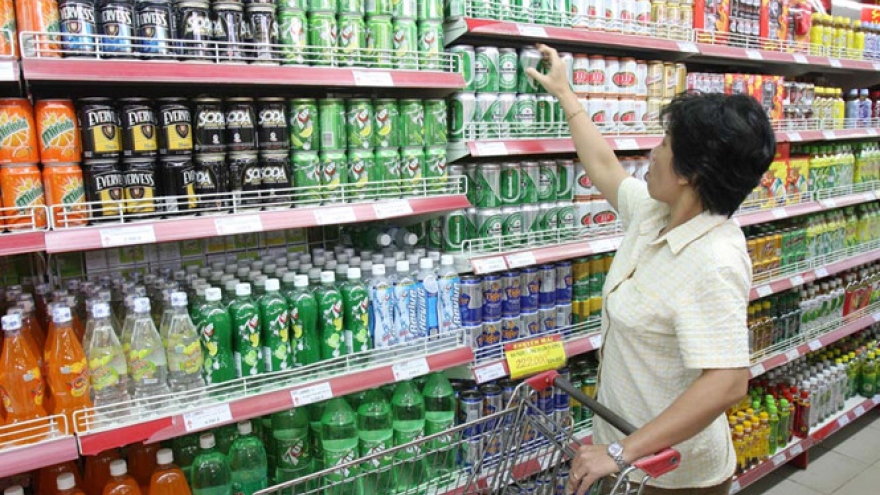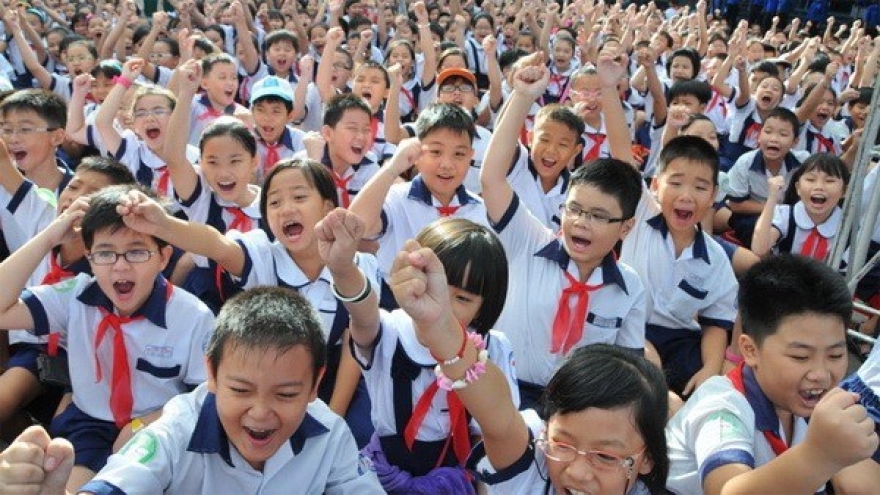Vietnam ministries against tax on sugary drinks
Vietnam’s Finance Ministry has proposed a special consumption tax on some soft drinks that it claims contain an unhealthy amount of sugar, but its argument has been dismissed by other ministries.
The Ministry of Industry and Trade said in a statement that imposing a special consumption tax on soft drinks because they contain sugar is not a convincing enough reason.
It said the finance ministry needs to give a clearer explanation as to why soft drinks should be subject to higher taxes and why their consumption should be restricted.
 |
| Soft drinks are displayed for sale at a supermarket in Hanoi, Vietnam. Photo by Reuters/Kham |
The trade ministry was repeating the same argument made by the Vietnam Chamber of Commerce and Industry (VCCI), which represents thousands of businesses in Vietnam.
The VCCI said last October that a special tax should only be imposed after adequate studies have been made on the drinks’ impacts on consumer health and how much the tax could help reduce the risks.
The Ministry of Agriculture and Rural Development has also demanded scientific evidence of why instant tea and coffee should be subject to the tax.
“No study has found that the abuse of sweetened tea or coffee causes obesity, diabetes or cardiovascular diseases in Vietnam,” it said.
The Ministry of Planning and Investment is also against the proposal, which it says could affect the beverage industry and its large workforce.
In Vietnam, special consumption taxes are levied on items and services considered unhealthy or luxurious such as tobacco, alcoholic drinks and cars.
The finance ministry has suggested a tax rate of 10%-20% on sugary drinks from 2019. “The tax will help regulate the consumption of sweetened beverages, and it’s also an international norm,” it said last August.
A letter from the World Health Organization (WHO) last September endorsed the proposed tax, which is effective in around 40 other countries, it said.
“The WHO recommends Vietnam impose a tax that can increase the market prices of soft drinks by 20%,” it said.
The ministry also cited a WHO report that shows excessive consumption of sugary drinks can lead to obesity which has been linked to many health risks such as cardiovascular disease, hypertension and strokes.
A study unveiled in June last year found that about 25% of Vietnamese adults are overweight or obese. The obesity rate among children under five years old is also rising fast.
Many Southeast Asian countries have already imposed taxes on sugary drinks, according to the ministry. The current rate is 20%-25% in Thailand, 5%-10% in Laos and 10% in Cambodia.
Myanmar, the Philippines and Indonesia are considering a similar tax.


